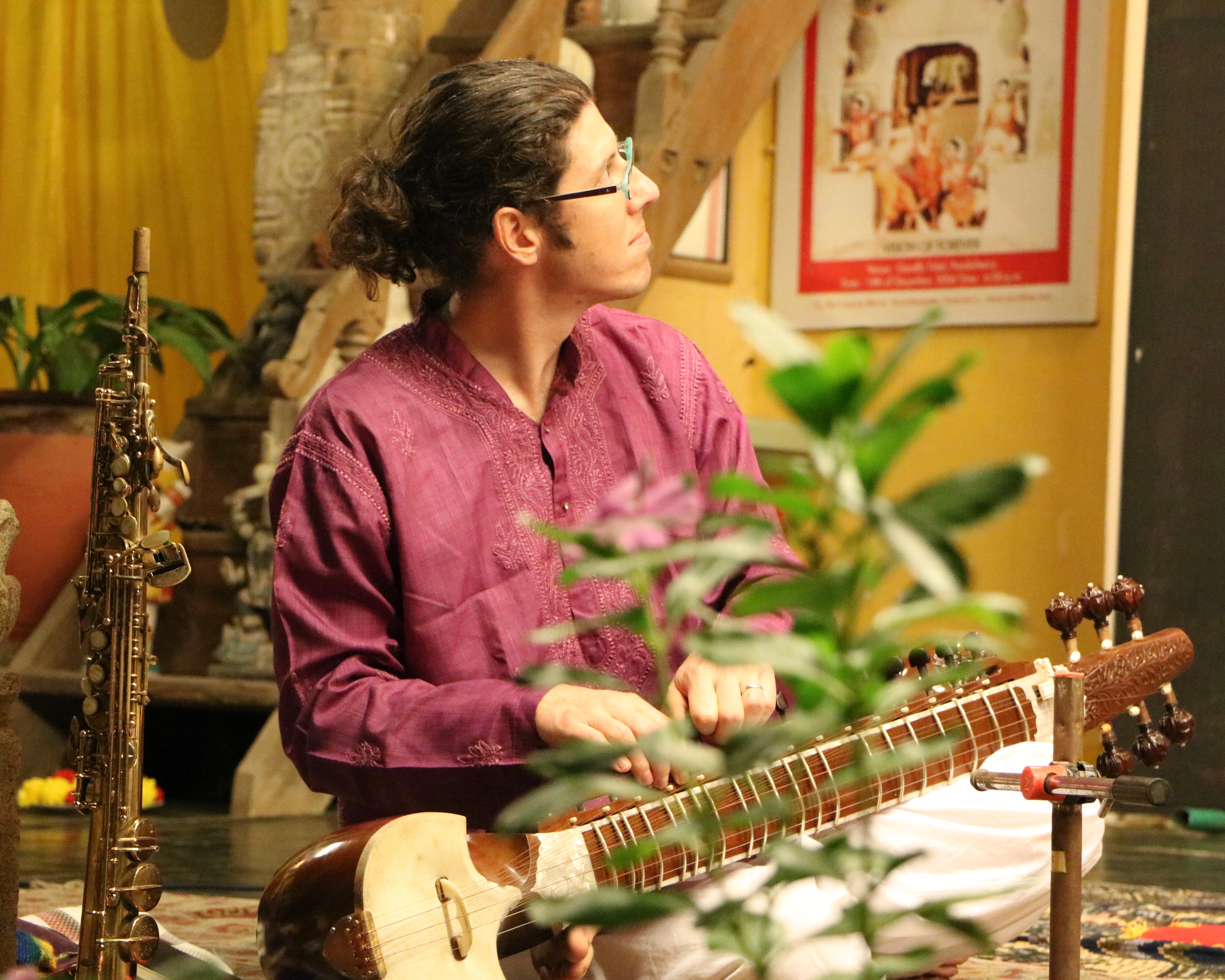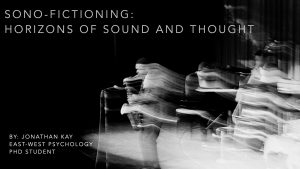
Universal Tonality and Revolutionary Sound-Worlding
Presented at the East-West Psychology Student Symposium 2024
Abstract
The presentation delves into the intersection of music, philosophy, and revolutionary thought. It explores how art, particularly improvisational music, can challenge established norms and create alternative models of world-making. Drawing from Western philosophical traditions and the works of thinkers like Gilles Deleuze and Felix Guattari, it delves into the concept of the sublime in art and its potential to disrupt political and cultural hegemony. The critical analysis of Debashish Banerji highlights how global capitalist and neo-colonial forces have imposed closures on human imagination, limiting potentials for individual and collective liberation. This inquiry prompts a reconsideration of the relationship between sensation and thought, as well as the conditions of real experience conducive to invention. Through experimental arts practice as research, the presentation aims to uncover the transformative power of music in shaping individual and collective subjectivities. It explores the revolutionary and creative philosophies of Deleuze and Guattari, emphasizing their resonance with figures like William Parker, whose cultural revolutionary stance underscores the need for an open call to transformative action through music. Theoretical frameworks are examined, including Deleuze and Guattari’s post-structuralist accounts of psychology and their notion of the “aleatory point,” which opens possibilities for radical emergence. William Parker’s vision of “Universal Tonality” serves as a focal point for discussions on cosmic potentials of sound and the cultivation of new psychic and collective landscapes. The presentation also critiques classical images of musicology and epistemic doxa, advocating for an experimental approach to improvisation rooted in Deleuzian principles. It concludes by emphasizing the role of sublime art in overcoming contemporary epistemic limitations and fostering new modes of collective becoming, exemplified by figures like William Parker, whose art embodies resistance and transformative potential.
 Previous Post
Previous Post

